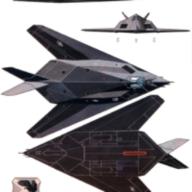Do they base it on the Uniform Code of Military Justice?
Or do they have another separate law?
Also, who do they usually trial?
Can they trial US military soldiers who committed the crime? Or only soldiers from the enemy country detained in the US?
THANKS! :D :D
What law do the military tribunal base their law and the decision?
2013-12-08 1:00 am
回答 (3)
2013-12-08 3:21 am
The UCMJ applies to US Military and some civilians working with the military. It is Federal Law embedded in title 10 US Code.
When trying belligerents that do not meet POW status International law is used, our own US Code can be used, we could even use the laws of the country they are caught in...which could be brutal compared to our own, Since they are not POW's they do not have to be tried. Can be held til the cows do not come home.
Any battle field crimes by US Forces are dealt with using the UCMJ NOT international law and by the US Armed Forces and no one else. We do not hand them over to The Hague. It is good to be the BIG kid on the block.
YOU need to read all Geneva Conventions...there are 4 plus the Protocols. Then the Hague Conventions. Prior to making any noise about other treaties that are out there make sure the US is a signatory....we, like others do not sign all of them. We like bomblets, incendiary bombs and land mines...so do many others.
When trying belligerents that do not meet POW status International law is used, our own US Code can be used, we could even use the laws of the country they are caught in...which could be brutal compared to our own, Since they are not POW's they do not have to be tried. Can be held til the cows do not come home.
Any battle field crimes by US Forces are dealt with using the UCMJ NOT international law and by the US Armed Forces and no one else. We do not hand them over to The Hague. It is good to be the BIG kid on the block.
YOU need to read all Geneva Conventions...there are 4 plus the Protocols. Then the Hague Conventions. Prior to making any noise about other treaties that are out there make sure the US is a signatory....we, like others do not sign all of them. We like bomblets, incendiary bombs and land mines...so do many others.
2013-12-08 1:10 am
1. International Law. Any treaty that has been signed by the USA and ratified by the Senate becomes law of the land. So a member can be tried in regards to violating treaty law. Such as he shot a POW.
2. Federal law. Just because he is in the service does not mean a military member can violate federal laws. So if he takes a minor across a state line for immoral purposes he can be tried under the Mann Act.
3. The UCMJ of course is binding 24/7
4. If they violate the law of another country they can be tried by the US military instead by that nation. For example, if you rape a woman in Germany, the Germans may give the right to try you to the US military, which has a more severe punishment for rape than does German law.
Lastly, you can be tried for violating an order. It does not matter what the order, if it was moral and lawful it is binding. If your Commander orders you to stay away from a particular bar and you go there and get caught, they can try you for that, even if you think the order was unfair.
2. Federal law. Just because he is in the service does not mean a military member can violate federal laws. So if he takes a minor across a state line for immoral purposes he can be tried under the Mann Act.
3. The UCMJ of course is binding 24/7
4. If they violate the law of another country they can be tried by the US military instead by that nation. For example, if you rape a woman in Germany, the Germans may give the right to try you to the US military, which has a more severe punishment for rape than does German law.
Lastly, you can be tried for violating an order. It does not matter what the order, if it was moral and lawful it is binding. If your Commander orders you to stay away from a particular bar and you go there and get caught, they can try you for that, even if you think the order was unfair.
2013-12-08 1:59 am
The word you mean is "try" - which is the process that is performed by a trial.
For example: "Who do they usually try?" .... "You mean the guy who gets a trial?"
For example: "Who do they usually try?" .... "You mean the guy who gets a trial?"
收錄日期: 2021-04-20 20:41:44
原文連結 [永久失效]:
https://hk.answers.yahoo.com/question/index?qid=20131207170018AAJk7Fk

